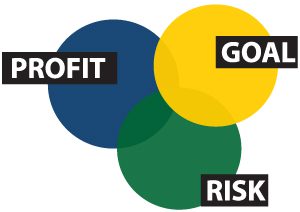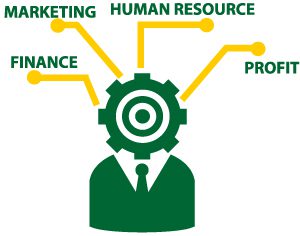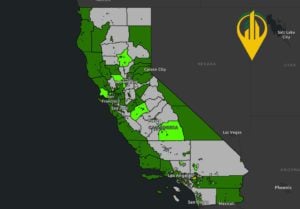Starting a business is not easy.
Starting a cannabis business is even more difficult, complicated, risk oriented, and can often involve many unexpected upfront costs!
 Finding a professional that can help lead you through the industry pitfalls is imperative for success in this emerging market. Cannabis consulting companies will guide you to a higher chance of success based on their past experiences.
Finding a professional that can help lead you through the industry pitfalls is imperative for success in this emerging market. Cannabis consulting companies will guide you to a higher chance of success based on their past experiences.
No matter what stage of business growth you are in, a trusted partner can help you establish a budget, predict a timeline, find a legal property, secure permit & cannabis licenses, stay compliant with regulations, and establish long-term business planning.
Canna-advisors and cannabis consulting firms are crucial in avoiding costly mistakes. By reading this blog post, we hope you learn from our research and experience to keep your business venture operational for many years into the ever-changing legal market.
Ready to just get started? Click here to contact us about consulting and find a cannabis consultant to help!
TABLE OF CONTENTS – CANNABIS CONSULTING ADVICE
- Budget Expectations
- Timeline for Operations
- Finding a Property
- Applying for Licenses
- Staying Compliant
- Partnerships
- We Can Help!
Budget Expectations
 The amount of money you will need is the most common misconception about what’s needed to get your cannabis business started. Conservative estimates in California suggest $250,000 for the most inexpensive startups, while a more moderate and realistic estimate states $750,000 is the capital you will need to get off the ground.
The amount of money you will need is the most common misconception about what’s needed to get your cannabis business started. Conservative estimates in California suggest $250,000 for the most inexpensive startups, while a more moderate and realistic estimate states $750,000 is the capital you will need to get off the ground.
It is remarkably common for us to receive phone calls from individuals with big dreams, fantastic ideas and no budget. It’s important to know what you’re working with and where that money will be allocated.
With regards to your budget you must consider:
- Real Estate. Will you be buying or leasing a property for your license? This decision will dramatically affect your start-up costs and it is a requirement.
- Build Out / Internal Operations. What are the potential build-out needs of your business and growth expectations? This means bringing your building up to code, which may involve remodeling or developing the property to meet code regulations.
- Application Costs. The costs involved can take many people by surprise. Just submitting an application can cost anywhere from $2,500 to $100,000, depending on the municipality. On average, it runs closer to $10-15,000.
- Legal Costs. Lawyers should definitely be involved in starting a company, as there are mountains of paperwork that should be reviewed by professionals.
- Marketing. Allocating a smart and realistic amount of money for cannabis advertising & marketing will be key in letting people know you are in business!
- Employee and Partnership Compensation. How will you pay employees, distributors or daily operation costs?
- Investors. Consultants can connect you with a wide network of people eager to get involved in the industry, and can be an important source of income when starting a new business.
- Operating At a Loss. For the first few months, being prepared to lose money at first is important. This is due to inventory costs and building a consumer base.
PRO TIP: Receiving cannabis consulting to assist with budgeting is completely invaluable, and the real starting point of everything. We can help!
Timeline of Operations
 Sliding into second place for the most common misconception would absolutely be the perceived timeline of novice cannabis business hopefuls to become operational.
Sliding into second place for the most common misconception would absolutely be the perceived timeline of novice cannabis business hopefuls to become operational.
Most canna advisors will tell you that your timeline should be flexible, realistic, and that you must have a lot of it dedicated to working on your business. It’s also important to understand that you will be waiting. Have you heard the term “Hurry up and wait?” This is the business.
Realistic timelines can take anywhere from nine months to a year and a half to become operational…
Shocked yet?
What most people don’t think about is the amount of time it takes to get licensed. Depending on what municipality you live in, getting your local license can be what holds up the process.
Often times application dates do not sync up with the timeline you’ve created in your head, and a waiting period for review and acceptance can also take months. Or perhaps your desired municipality is not yet legal and you were not aware, or you’re having difficulty trying to find a cannabis retail space on your own in the “green zone”. Or perhaps the hold up is finding 420 properties that will meet your business needs and you are having difficulty securing a lease or convincing the owner to sell their property for cannabis use.
Most commonly, mistakes made in the application process can put you back months in the journey for cannabis permits and licensing or even worse–cause your application to be outright denied.
No doubt–using a cannabis consulting group to assist you in the process saves you the potential loss of a lot of time and money.
Finding A Property
 The cornerstone of your operational business is finding the real estate for it. Securing your location would be the first task after you decide what type of cannabis business you’d like to have.
The cornerstone of your operational business is finding the real estate for it. Securing your location would be the first task after you decide what type of cannabis business you’d like to have.
A general checklist for acquiring a property for this special industry includes:
Finding the right agent or broker. There are a lot of great real estate agents and brokers out there. Perhaps you may be one yourself. However, this particular kind of real estate is another animal, and personal knowledge of the cannabis industry is a must. Your agent must have the skill to not only find you a property, but find you a property that is best for your business type. Knowing the day to day business operations for a cultivation, manufacturing, dispensary/delivery, distribution, or testing facility are important. Getting the details right is what can make or break a sale.
Locating a legal 420 property. Identifying green zones and viable properties within take time and know-how. You must identify sensitive uses and the buffer zones where your business cannot legally be located. For example, in Los Angeles you cannot have two retail cannabis businesses within 700 feet of each other, a school, park, public library, drug and alcohol rehabilitation center, day care or permanent supportive housing, or within 200 feet of a residential area. (It can get pretty complicated, and is designated by license type)
Finding 420 friendly landlords. Even though this industry is booming, there are still complications with regard to prejudice and stigmas about cannabis. Not everyone is onboard and it takes time, patience and education to ease this process at times.
Frequently check up on local regulations/ordinances. These can sometimes be changing from month to month. Staying on top of what your city council is proposing, amending and commenting on assists in locating the best properties and staying ahead of the curve.
Search 420 properties on our website to see options we have currently listed. Sign up as a buyer to tell us more about your business requirements.
Green rush consulting puts you in the hands of professionals who understand the industry and can help you find solutions to these real estate problems you may not have realized were going to be an issue.
Applying for Licenses and Permits
If you take anything away from this blog, it is to never underestimate the workload involved in procuring a license for operation. Skipping this step and operating an illegal business is not worth the risks involved, which can be anything from severe fines to hefty jail time.
When applying for licenses and permits, there is a constant communication with the city to address comments that they give in regards to your application. A marijuana consultant knows that in order to secure a local and state license the following will need to be thoroughly mapped out:
- A Good Business Plan. Your consulting partner can assist you in making sure your business plan is properly developed with your goals in mind.
- Agreements. If you have equity partners or strategic partnerships, all agreements will need to be laid out, discussed and signed before applying for your license or permit.
- Architectural Plans. If there is build-out required for your property, you will need to have the architectural plans prepared and ready to present to the City Planner for review.
- Understanding how the permits are granted, whether by merit, lottery or first come first serve:
- Lottery systems – exactly how it sounds, by random lottery numbers given to applicants.
- Merit based – permits are granted based on the applicant’s qualifications in the industry. If you are new to cannabis, finding a partner who may meet these qualifications assists in being granted a permit before the city reaches its cap. They want the best, so you need to be the best.
- First come, first serve – means once you submit an application to the city, it goes through the planning department who will review the sections. The planning department will return comments on the sections that will need to be addressed by the applicant. When the first applicant addresses all the comments, that applicant would be the first in line to get their conditional use permit. Consulting experts help you get this done timely and accurately.
Having an accurate and completed application is extremely important in securing your license or permit to operate as a cannabis business.
EXAMPLE – A local business was granted a conditional use permit here in San Diego, but a few weeks later had their permit revoked due to a sensitive use (a church) that was overlooked and within the buffer zone of their property. A simple, stupid mistake like this can cost you time and money, again reinforcing that receiving consulting services is invaluable to getting the job done right with due diligence.
Staying Compliant
 So you’ve secured your location, your license, and you’re ready for operations!
So you’ve secured your location, your license, and you’re ready for operations!
Do you still need consulting?
Absolutely.
Staying compliant with local and state regulations for cannabis operations is vital, as non-compliance can result in losing your license and damaging all the work you’ve done to get to this point. There is a lot to know and you want to find professional companies for each aspect of your business for ensure compliance.
Examples of how to stay compliant:
- Pay Your Taxes. Do not let this take you by surprise. Being ill-prepared for the amount of taxes that must be paid has been the downfall of many a cannabusiness.
- Test Your Products. Testing is required by law in most legal states, and selling untested products can result in a loss of licensing.
- Understanding Caps. Often times, municipalities will have square-footage caps for cultivation and nurseries. Being aware of these can help you zero-in with your real estate search and meet the city’s requirements.
- Packaging Compliance. Making sure any packaging or labels of products follow all state regulations is vital. Failure to do so can cause you to be shut down.
- Proper Security. Setting up proper securities as outlined in local ordinances with regards to guards, video cameras and design.
- Taking Inventory. Most ordinances will outline procedural compliance with regards to how to take inventory.
- Sales Procedures. State regulations are usually very specific about how to make a sale. Ie: asking for ID twice.
- Implementing Seed-to-Sale. Understanding and participating in seed-to-sale tracking of products. This affects every license type.
- Marketing Laws. You must be rigorously compliant in how you market your company or products. There are specific laws on how anything cannabis related is marketed.
It’s extremely important to keep your company compliant, or you run the risk of missing out on that $50 Billion Dollar pie if you don’t. So take a moment to contact our California Cannabis Compliance Services!
If this all seems overwhelming– fear not. A good consulting partner can help you map all this out and create a comprehensive plan for success.
Strategic Partnerships
Cannabis becoming a regulated product means licensed businesses are required to work with other licensed businesses.
If you are a grower, you will want a reliable and trusted distributor to get your product to a retailer. If you are a retailer, you will need to be connected with loads of licensed cannabis vendors. The supply chain from seed-to-sale gives way for a myriad of business types and ancillary cannabis services to flourish.
Consulting companies typically have a large network of licensed businesses that they’ve worked with and want to connect you with. Developing strategic partnerships with your canna-consultant can help expand your network and introduce you to a trusted partner to help you grow. Even if you are just looking to invest in cannabis, there are many options and experienced assistance can be a significant difference between profit and loss.
YOU CAN DO IT!
The legal cannabis industry is only a mere 22 years old, starting with the Compassionate Use Act in 1996, essentially giving birth to the American cannabis company. There is so much to be learned, even by veterans in the community. It would stand to reason that if you are fresh to an industry, getting cannabis training and advice from someone who knows the ins and outs, are experts in their field and want to see this industry thrive is your best move. You’ll receive the best type of results with a cannabis consultant!
Are you a business professional looking for cannabis consulting?
Find a knowledge consultant in our network by taking the time to fill out the form below or read our blog further to learn more about working in the cannabis industry.
Please let us know what you think in the comments.






One Comment
Josh Kerkhoff
I appreciate this information. I dropped by a few weeks ago and gave Mikolos my business card and was hoping I could connect at another point in the future and send you some digital information as well. Let me know how best to do that.